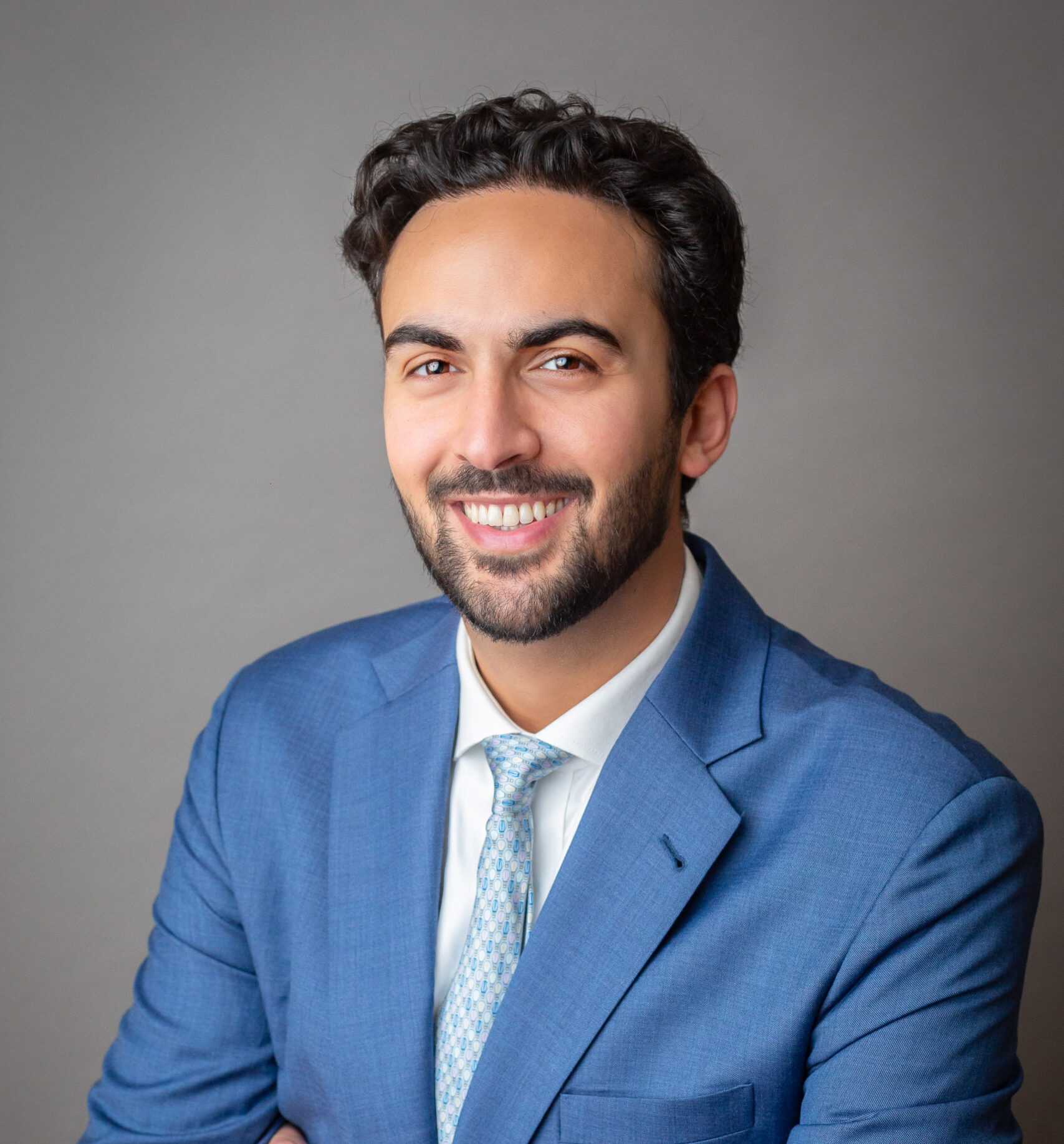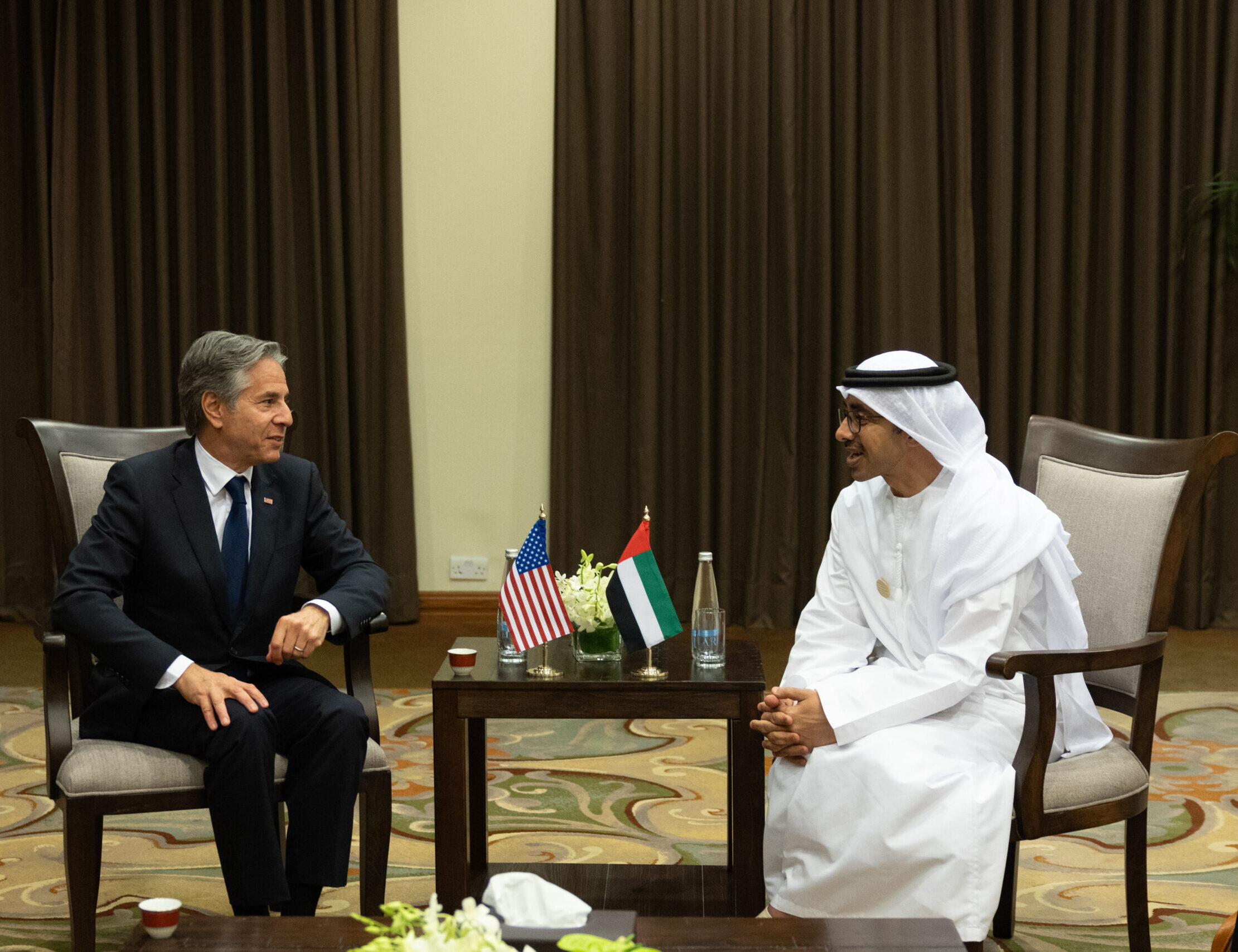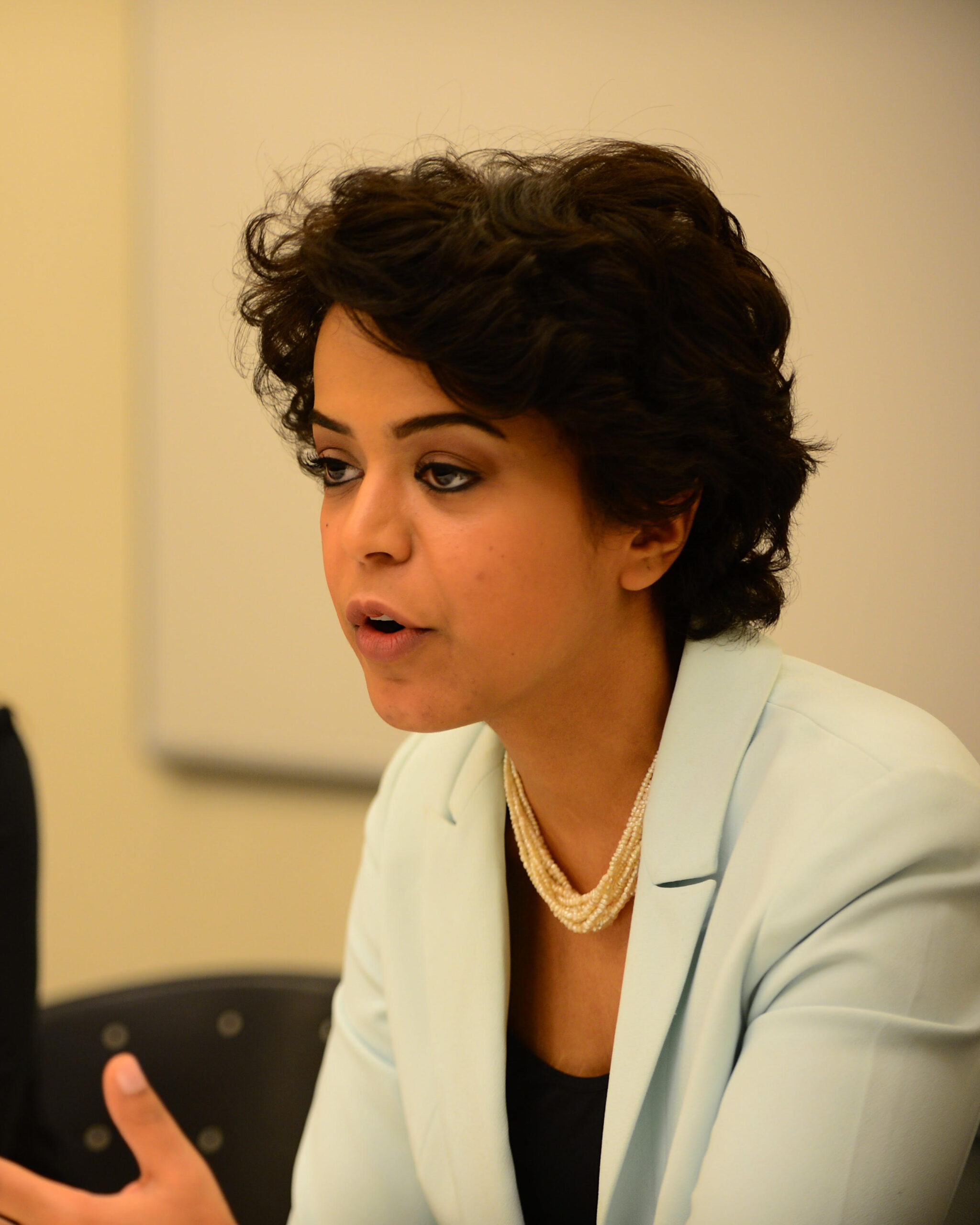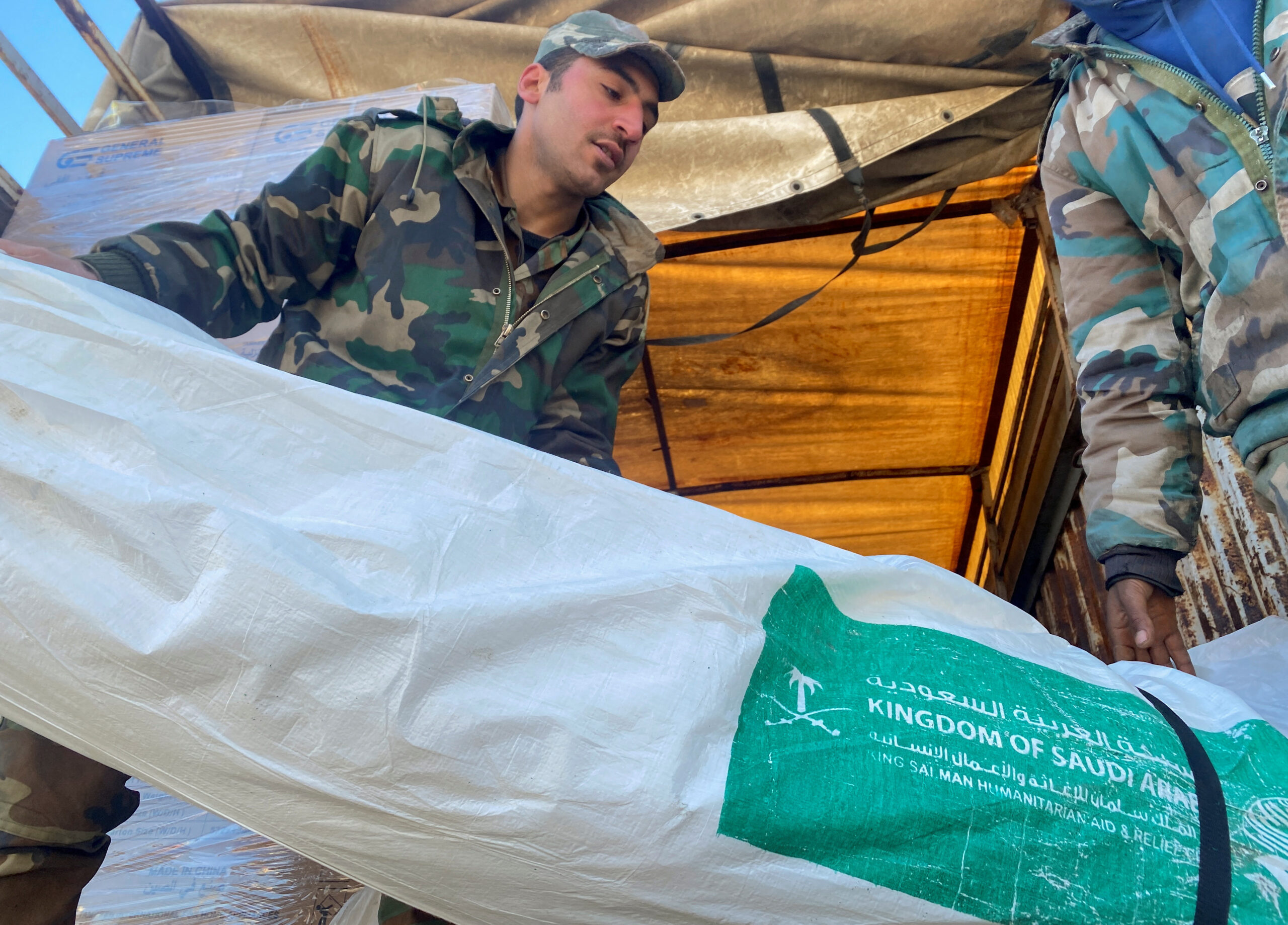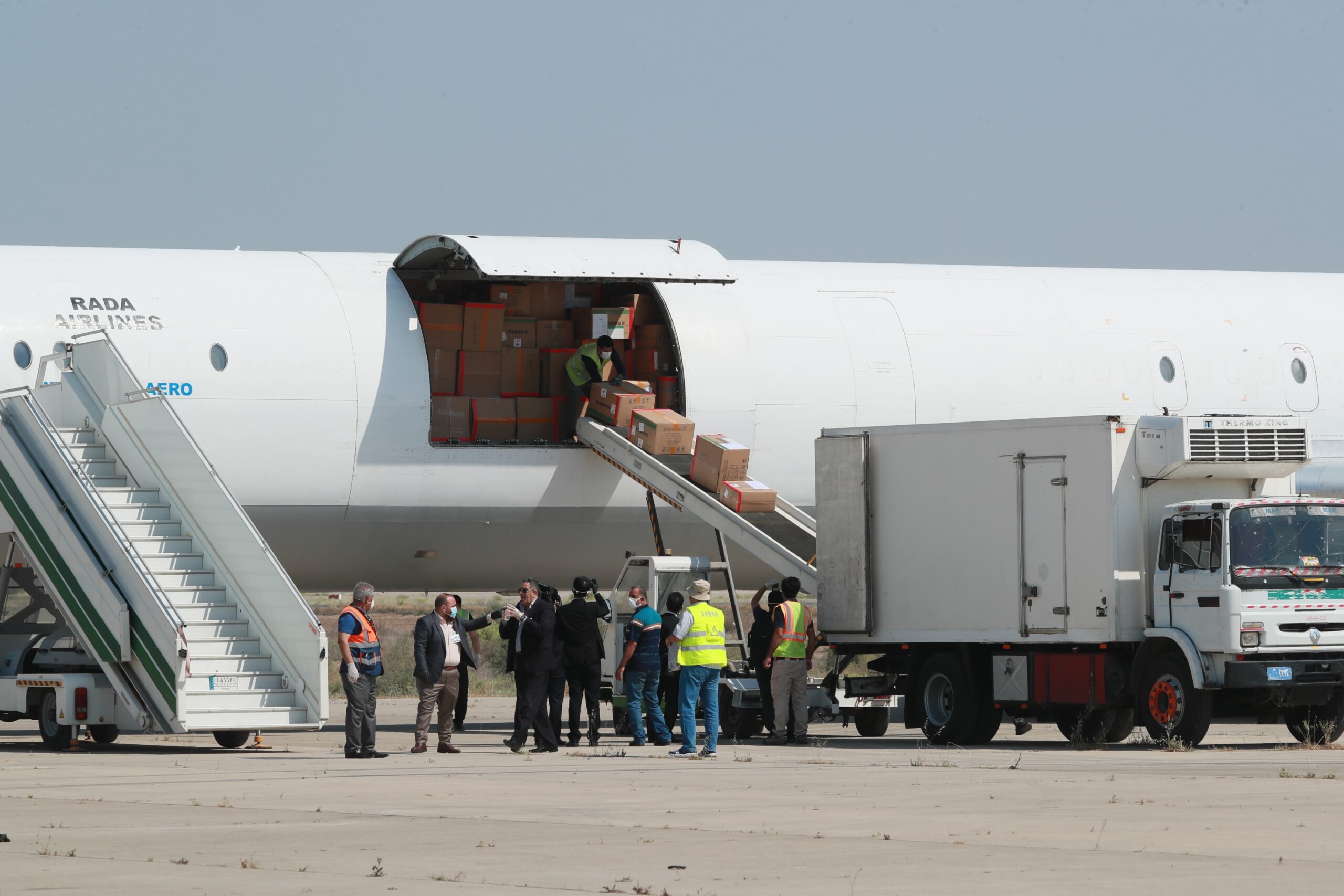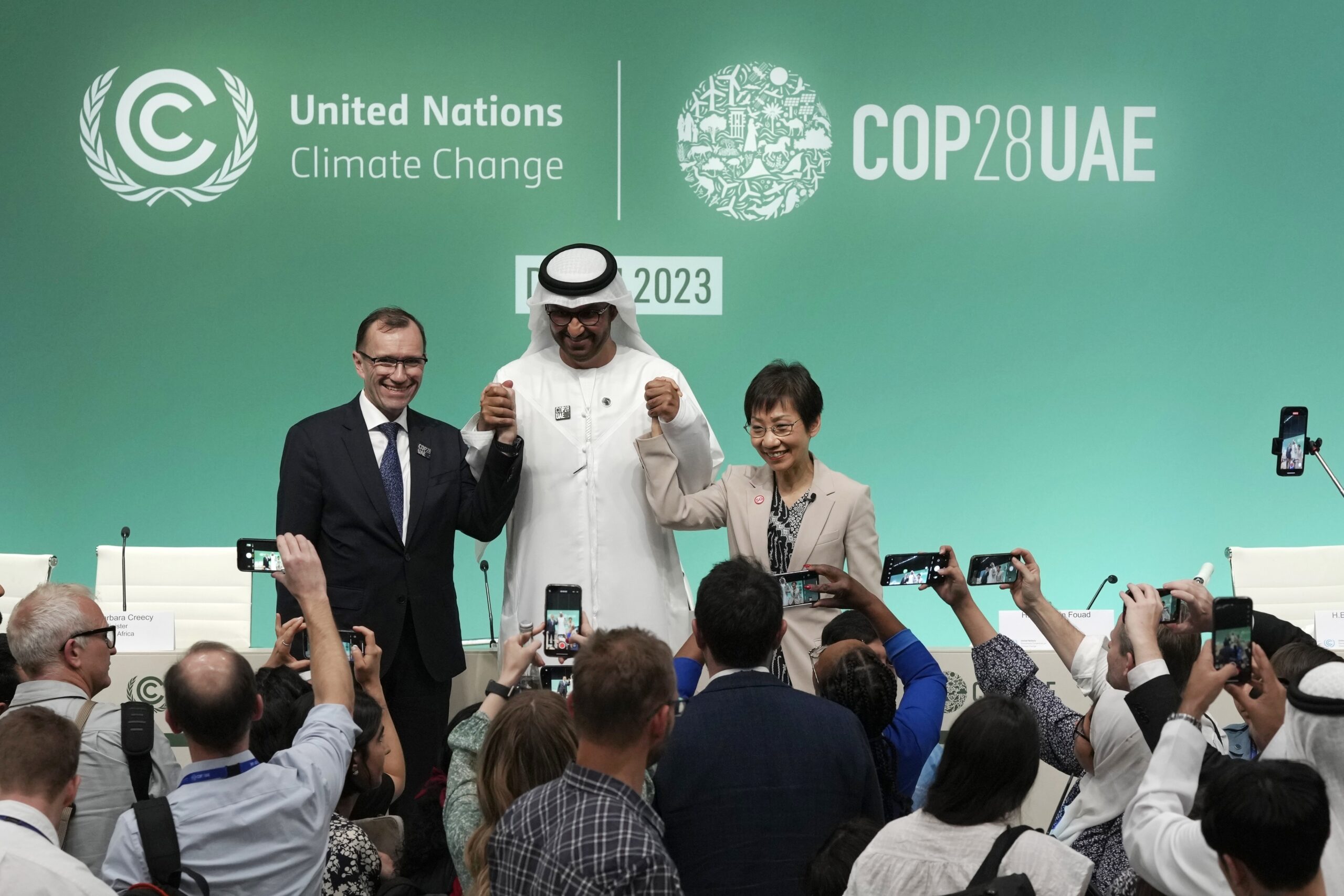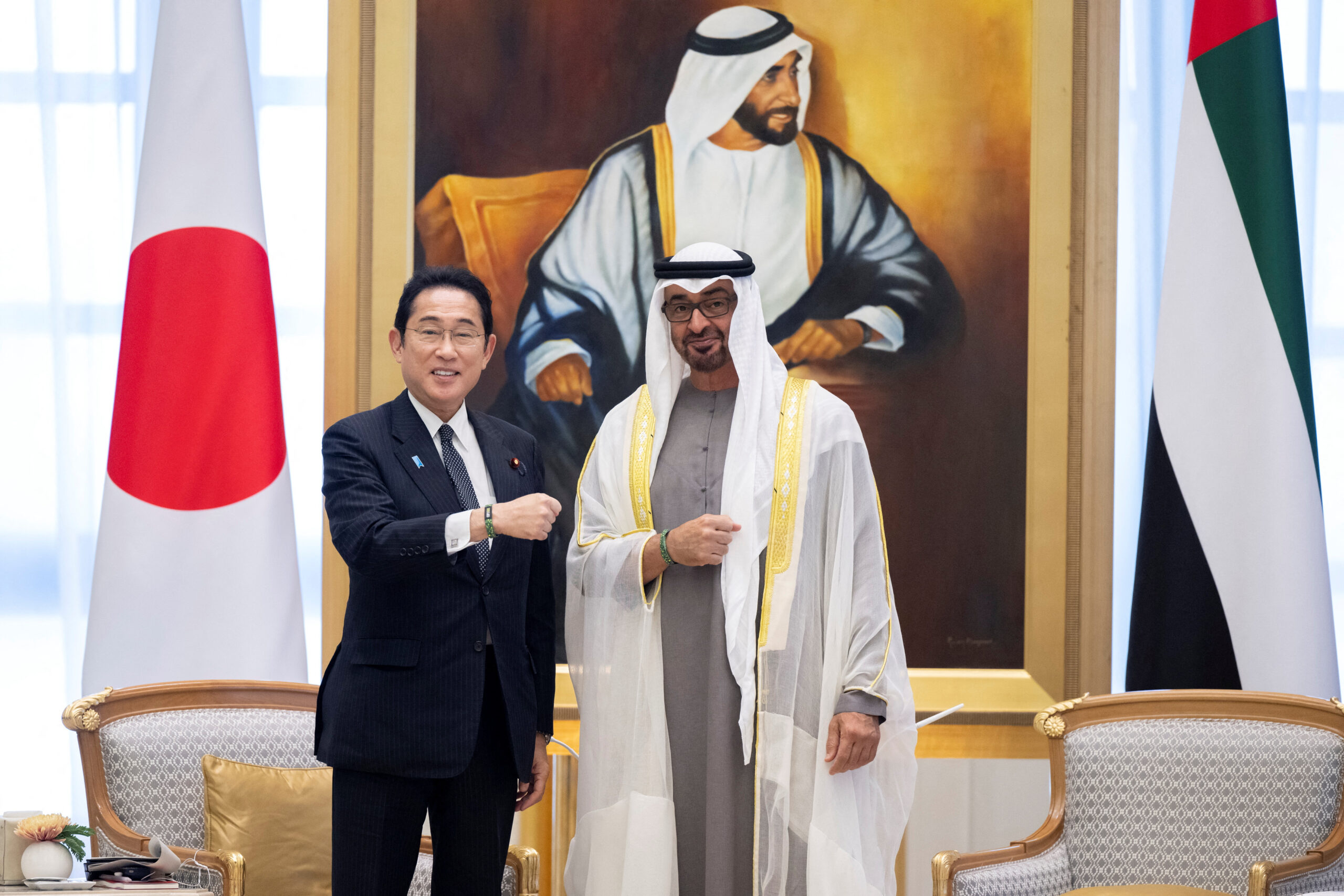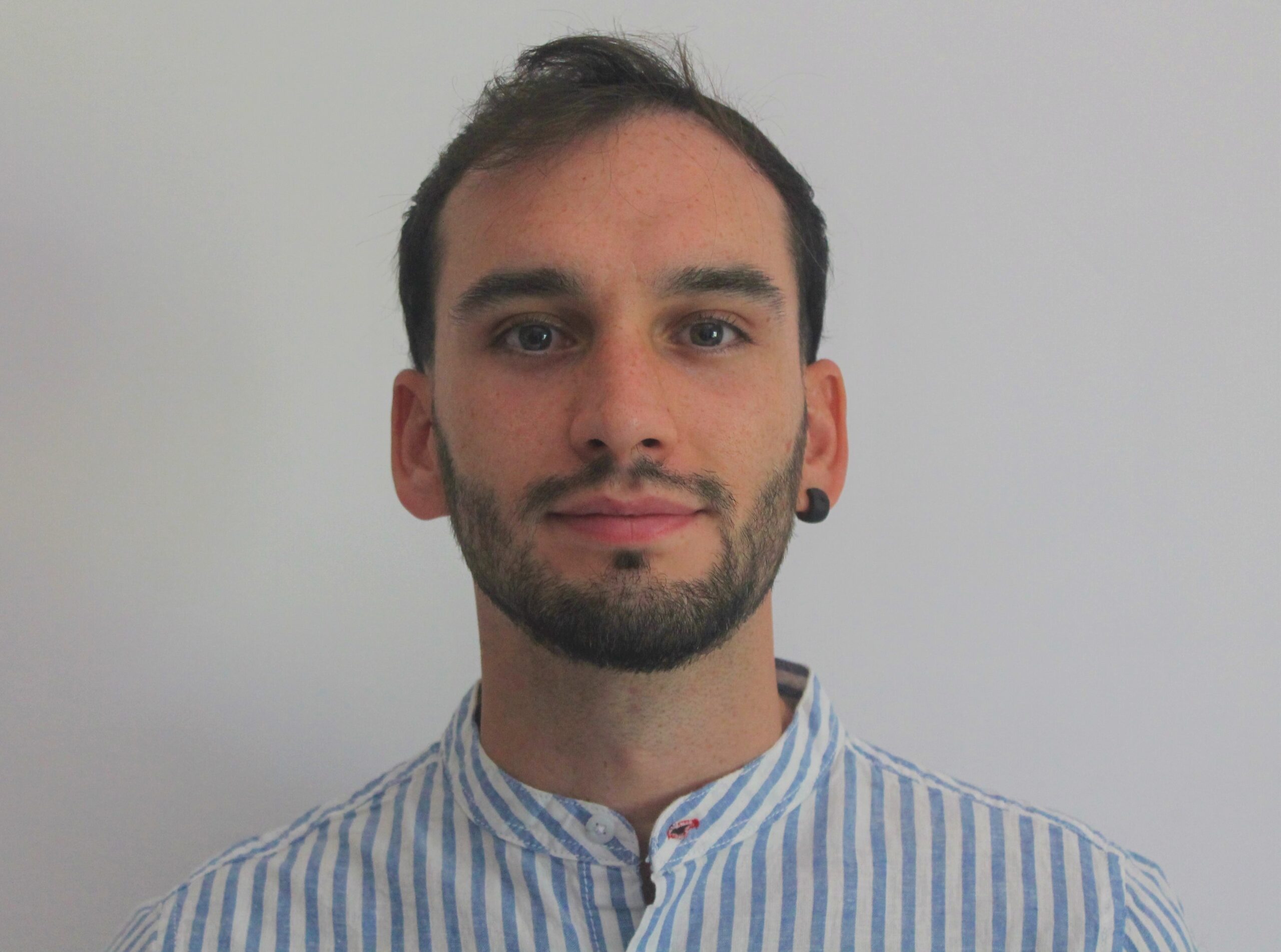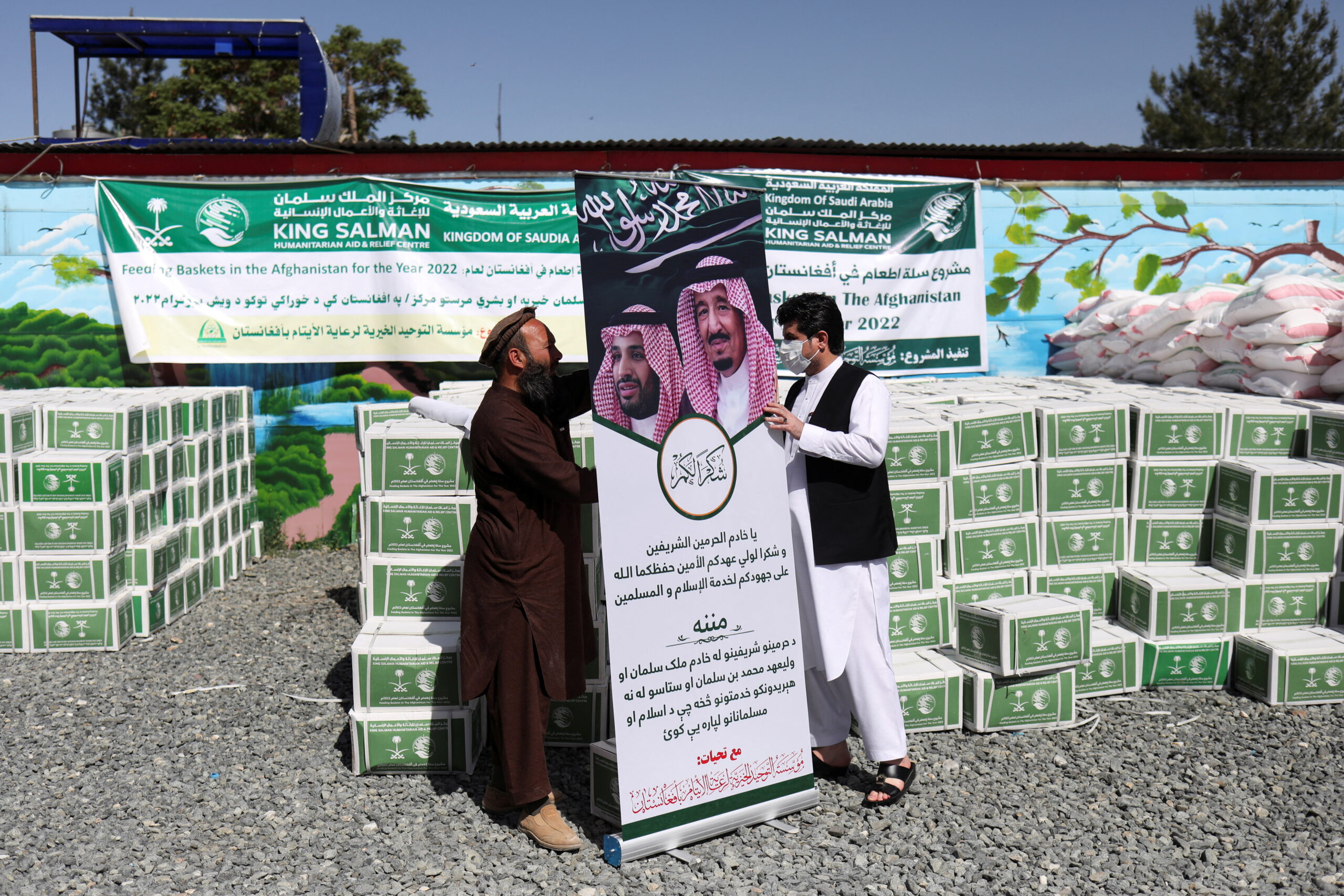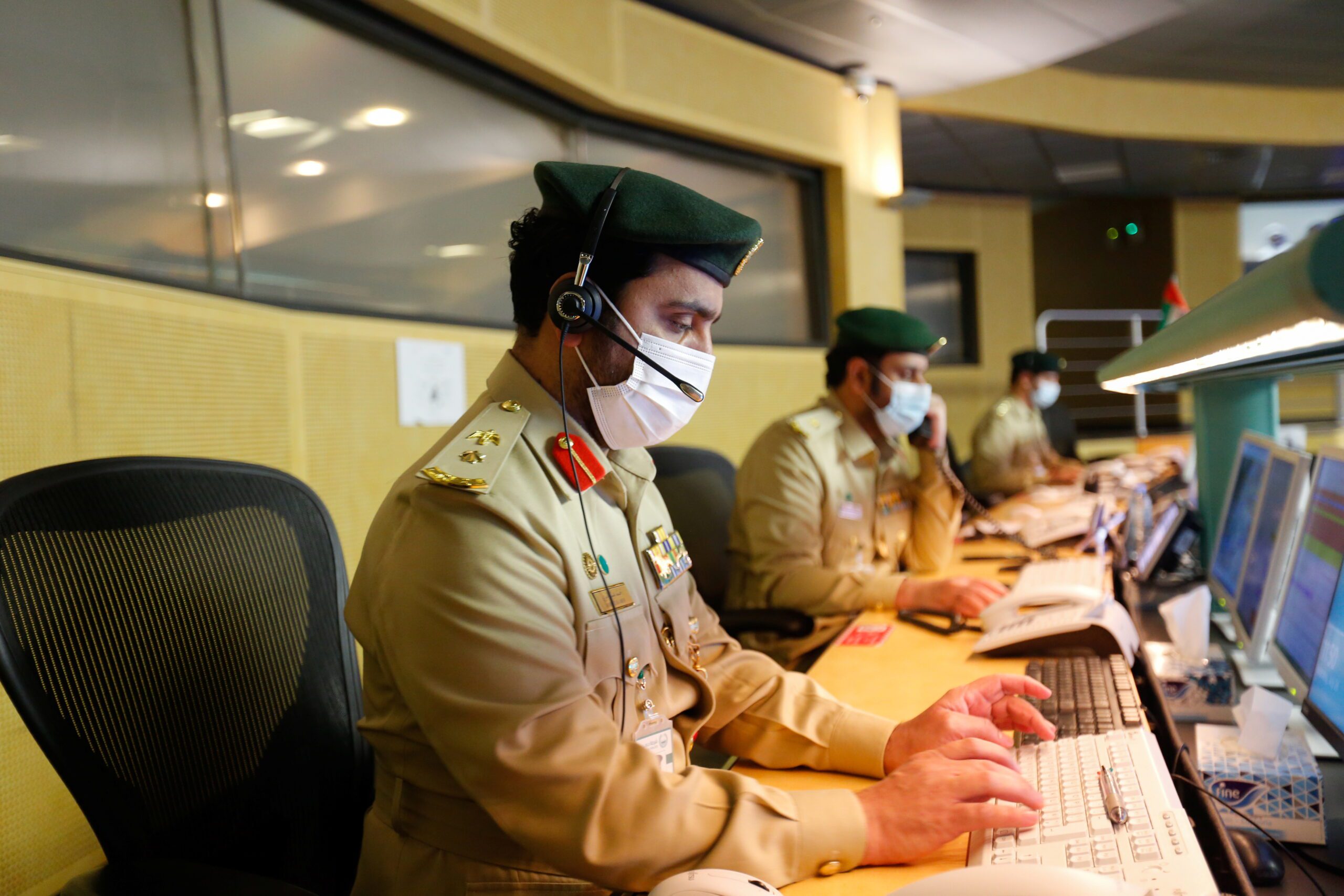The UAE’s Humanitarian Aid Agenda
The use of pragmatic humanitarianism allows the UAE to advocate for strategies that reduce human suffering while also serving its national security interests.
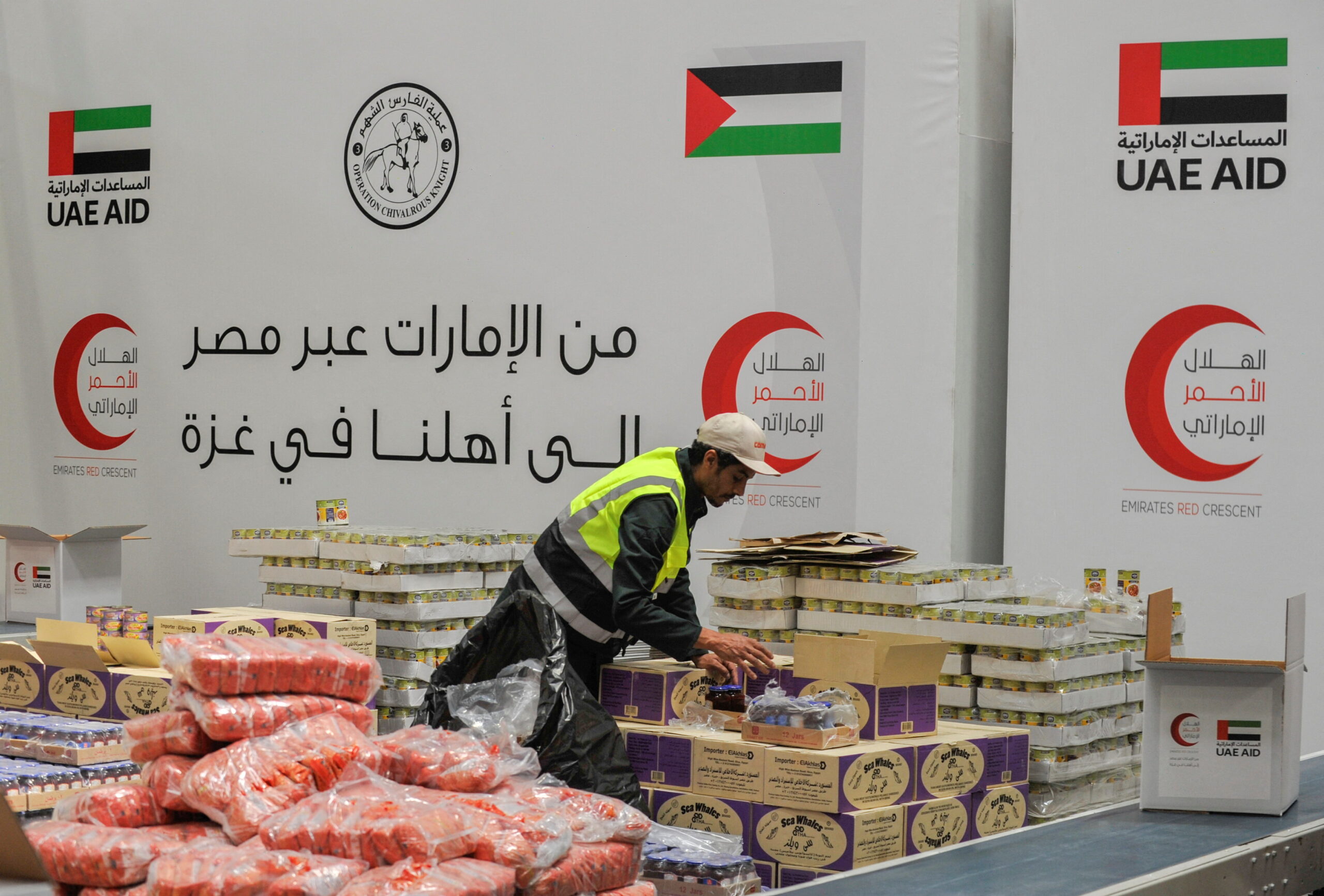
In recent years, the United Arab Emirates has strategically positioned itself as a global player committed to both regional stability and humanitarian ideals. The strategic aspects emphasizing a humanitarian orientation not only address immediate crises but also aim to foster long-term stability and prosperity for communities in conflict zones. In his November 11, 2024 address at the 11th Abu Dhabi Strategic Debate, Anwar Gargash, advisor to the UAE president on foreign policy, framed his remarks around “the imperative to integrate humanitarian perspectives into strategic calculus,” underscoring how humanitarian considerations are a core element of the Gulf country’s diplomacy strategy. He noted the “human costs” in the region of countries’ foreign policy decisions and regional conflict and stressed that “humanitarian considerations in our region should no longer be an afterthought.” He said, “It is critical that the lives of people should become the primary driver” of decision-making processes and that dialogue and de-escalation should be prioritized in foreign policy decisions. He continued that inaction, or purely strategic motives, can destabilize entire regions and exacerbate human suffering, especially among vulnerable groups, such as women, children, and the elderly.
Pragmatic Aid Agenda
The humanitarian accents of the UAE’s foreign policy are reflected in initiatives aimed at conflict-affected regions. Humanitarian aid is a significant aspect of this approach, with the UAE ranking among the world’s largest humanitarian donors. In 2022 alone, the UAE allocated billions of dollars toward humanitarian aid, supporting crisis-stricken regions across Africa, Asia, and the Middle East.
The UAE also commits substantial funds and resources to emergency relief, health care, education, food security, and infrastructure in war-torn countries and regions. Gargash highlighted the UAE’s commitment to prioritizing humanitarian considerations as a means of de-escalating regional conflicts. By supporting aid in conflict zones and areas recovering from conflict, the UAE aims to reduce hostilities and foster an environment conducive to negotiation, in efforts to not only mitigate immediate suffering caused by conflicts but also contribute to long-term stability. The UAE has played a role as a mediator in the Russia-Ukraine war and facilitated prisoner exchanges. Additionally, the UAE has invested $3 billion in Iraq’s infrastructure, and it partnered with UNESCO to restore iconic sites, such as the Al-Nuri Mosque in Iraq, contributing to cultural preservation.
During the coronavirus pandemic, the UAE was a key global actor in pandemic response efforts. It provided critical medical aid and supplies to over 135 countries, leveraging its advanced logistics networks and humanitarian infrastructure, such as the International Humanitarian City in Dubai. The UAE facilitated vaccine distribution, collaborating with international organizations, including the World Health Organization and COVID-19 Vaccines Global Access, to promote equitable access to vaccines, especially in developing countries.
An important component of the UAE’s pragmatic aid agenda is its balance between multilateral cooperation and independent action. In his address, Gargash advocated for a collective Arab response to crises, highlighting the UAE’s commitment to multilateral and collaborative problem solving. Additionally, the UAE collaborates with major international organizations, such as the United Nations, World Health Organization, and International Committee of the Red Cross. However, it also pursues independent initiatives, such as establishing camps and shelters for Syrian refugees across countries including Jordan and Lebanon. This autonomy has allowed the UAE to maintain a significant degree of direct oversight of its humanitarian efforts. While this approach occasionally diverges from established humanitarian norms, it reflects the UAE’s preference for flexibility over adherence to traditional frameworks.
The Emirati approach to foreign aid is distinguished by a notable absence of strings attached to its aid. Unlike some countries that condition foreign aid on political, economic, or strategic concessions, the UAE provides substantial assistance to many countries without expecting anything in return. This commitment is evident in its extensive support to countries in need, ranging from emergency relief efforts in conflict zones and natural disasters to long-term development projects in underprivileged regions.
Leveraging Humanitarian Diplomacy for Global Impact
The UAE seeks to demonstrate that humanitarianism and pragmatism are not mutually exclusive. In advocating for de-escalation between Israel and Iran, for example, the UAE balances its humanitarian goals with a strategic pursuit of regional stability. This pragmatic humanitarianism, rooted in realistic assessments of regional dynamics, allows the UAE to advocate for strategies that reduce human suffering while also serving national security interests.
The UAE’s humanitarian diplomacy is historically grounded in its Islamic cultural heritage, emphasizing generosity and compassion as central values. Under the leadership of Zayed bin Sultan al-Nahyan, the founder of the UAE, humanitarianism was elevated as a cornerstone of national identity in the 1970s and later institutionalized as a key aspect of foreign policy.
To professionalize its aid sector, the UAE established the Office for the Coordination of Foreign Aid in 2008. By introducing global best practices, engaging international experts, and becoming the first non-Western country to align with the OECD’s Development Assistance Committee standards, the UAE became a model for other Gulf donors in terms of institutionalizing the humanitarian sector. Dubai’s International Humanitarian City, launched in 2003, has become the world’s largest humanitarian logistics hub, hosting several U.N. agencies and nongovernmental organizations and facilitating real-time tracking of relief supplies through its Humanitarian Logistics Databank. These innovations highlight the UAE’s ambition to integrate humanitarian aid with its broader economic and logistical capabilities and showcase high-impact institutionalized humanitarian efforts as a key component of its foreign policy.
International Reputation and Influence
Humanitarian diplomacy has become a powerful tool for the UAE to enhance its international reputation and influence. By consistently contributing to global humanitarian efforts, the UAE has cultivated its reputation as a pivotal donor of humanitarian aid, garnering goodwill from recipient countries and appreciation from an international community always in need of key donors for urgent appeals and longer-term humanitarian programs. This has elevated the UAE’s position as a key Middle Eastern power, aligning its humanitarian activities with its ambition to influence regional and global affairs. The UAE’s focus on philanthropic activity, global public health, and strategic health initiatives has further buttressed this soft-power component in the UAE’s broader diplomatic toolkit.
Humanitarianism should not only influence the UAE’s policy decisions but must be integrated in its foreign relations, Gargash stated. In recent years, the UAE has promoted regional stability, advocated for tolerance, supported sustainable development, and prioritized humanitarian aid. These interconnected values reflect the UAE’s vision of becoming a leader in peacebuilding, countering extremism, and providing support to regions in crisis.
Gargash’s speech at the Abu Dhabi Strategic Debate reflected the UAE’s focus on a foreign policy model that blends pragmatism with humanitarian ideals, addressing immediate crises, including the needs of vulnerable populations such as in Gaza, while also fostering long-term stability. Beyond the specific message of this speech and other UAE messaging efforts, the Emirati focus on humanitarian strands in its foreign policy should also be understood as part of a soft-power, state branding effort that emphasizes a reputation for state credibility, international partnership building, and global influence. The Gargash speech is a powerful reminder of the broader UAE foreign policy mission: The country has sought to promote a diplomacy that can strengthen humanitarian efforts and advance peace and stability while enhancing its international influence.
The views represented herein are the author's or speaker's own and do not necessarily reflect the views of AGSI, its staff, or its board of directors.
